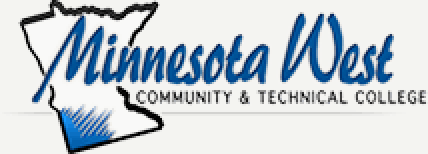OTAC 1210 Pediatric Applications
OTAC 1210: Pediatric Applications
Description
Pediatric Applications addresses occupational therapy evaluation, treatment, and therapeutic intervention from the prenatal stages through adolescence. Pediatric development and functional ability are explored alongside occupation-based and evidence-based practice. Intra- and interdisciplinary dynamics and professional behavior is a focus. Each setting for pediatric practice is considered as well as family-centered care.
Credits
4
Prerequisite
OTAC 1110 and PSYC 1150
Corequisite
None
Topics to be Covered
1. Intra- and interdisciplinary teamwork
2. Pediatric health and development
3. Clinical skills
4. Pediatric settings and family-centered care
Learning Outcomes
B.2.6. Effects of the Disease Processes (Mastery Level)
Understand how occupational performance is affected by the effects of disease processes including heritable diseases, genetic conditions, mental illness, disability, trauma, and injury.
B.3.1. Therapeutic Use of Self (Mastery Level)
Demonstrate therapeutic use of self, including one’s personality, insights, perceptions, and judgments, as part of the therapeutic process in both individual and group interaction.
B.3.2 Professional Reasoning (Mastery Level)
Demonstrate professional reasoning to inform occupation-based interventions that focus on: client factors, performance patterns, and performance skills; creation, promotion, establishment, restoration, maintenance, modification, and prevention.
B.3.3. Standardized and Nonstandardized Screening and Assessment Tools (Mastery Level)
Contribute to the evaluation process of client(s)’ occupational performance, by completing an occupational profile, and administering standardized and nonstandardized screenings and assessment tools as delegated by the occupational therapist.
Explain the importance of using psychometrically sound assessment tools when considering client needs, and cultural and contextual factors.
B.3.6. Provide Interventions and Procedures (Mastery Level)
Provide direct interventions and procedures to persons, groups, or populations to enhance safety, health and wellness, chronic condition management and performance in occupations. This must include the ability to collaborate with the occupational therapist related to interventions and selecting and delivering occupations and activities: occupations as a therapeutic intervention; interventions to support well-being (ex complementary health and integrative health); interventions to support self-advocacy related to the person, groups, or populations; virtual interventions.
B.3.8. Grade and Adapt Processes or Environments (Mastery Level)
Assess, grade, and modify the way persons, groups, and populations perform occupations and activities by adapting processes, modifying environments, implementing assistive technology or adaptive equipment, and applying ergonomic principles to reflect the changing needs of the client, sociocultural context, and technological advances.
B.3.13. Dysphagia and Feeding (Mastery Level)
Demonstrate interventions that address dysphagia and disorders of feeding and eating, and train others in precautions and techniques while considering client and contextual factors.
B.3.15. Assistive Technologies and Devices (Mastery Level)
Describe the collaboration process with the occupational therapist to identify appropriate features of assistive technologies and durable medical equipment to support the client’s participation.
Demonstrate strategies with assistive technologies and devices (e.g., aids for communication, mobility, sensory loss, computer access, seating and positioning systems) used to enhance occupational performance.
B.4.6 Care Coordination, Case Management, and Consultation (Mastery Level)
Demonstrate knowledge of: care coordination, case management, and transition services in traditional and emerging practice environments; the consultative process with persons, groups, programs, organizations, or communities in collaboration with inter- and intraprofessional colleagues.
Credit Details
Lecture: 2
Lab: 2
OJT: 0
MnTC Goal Area(s): None
